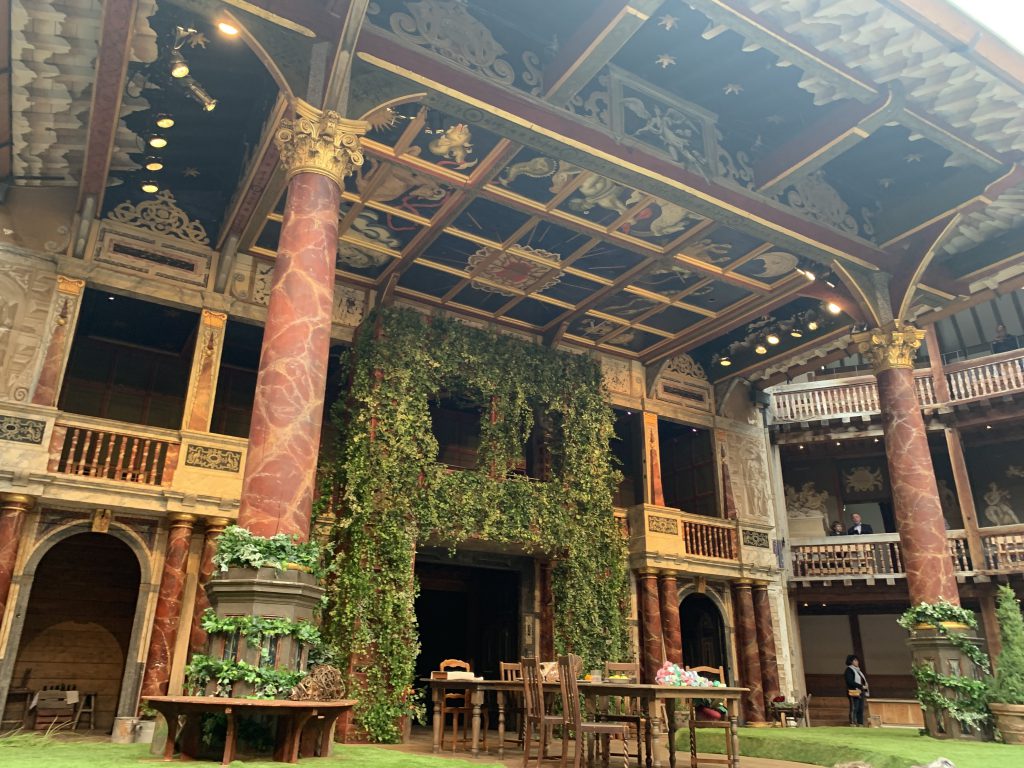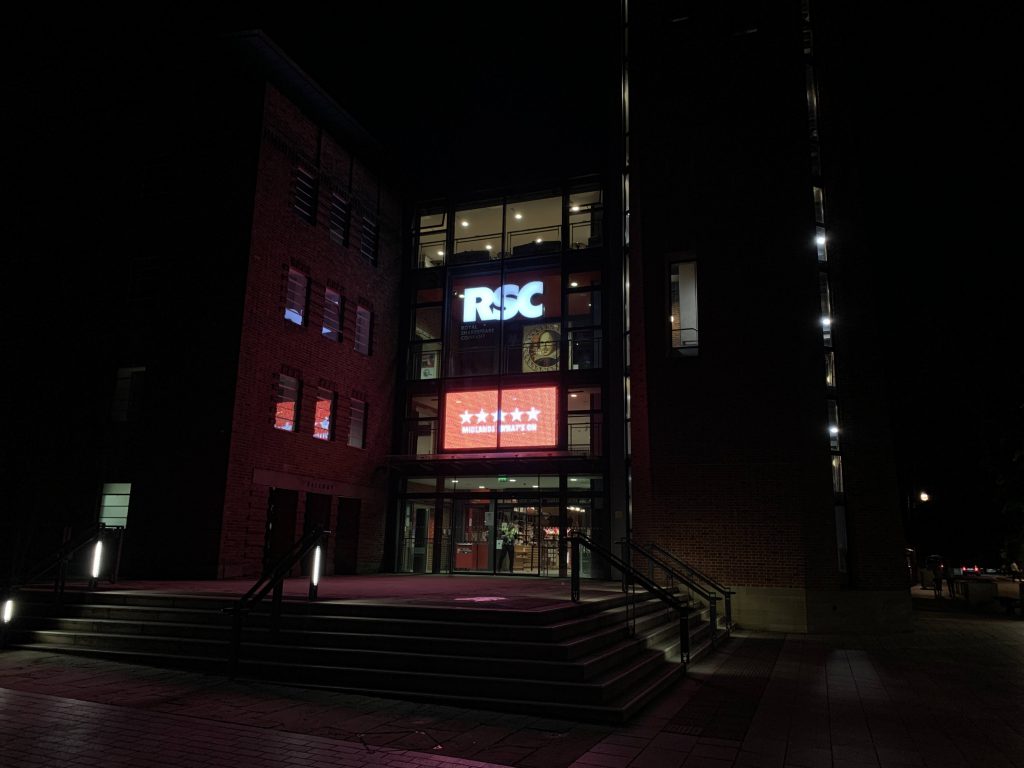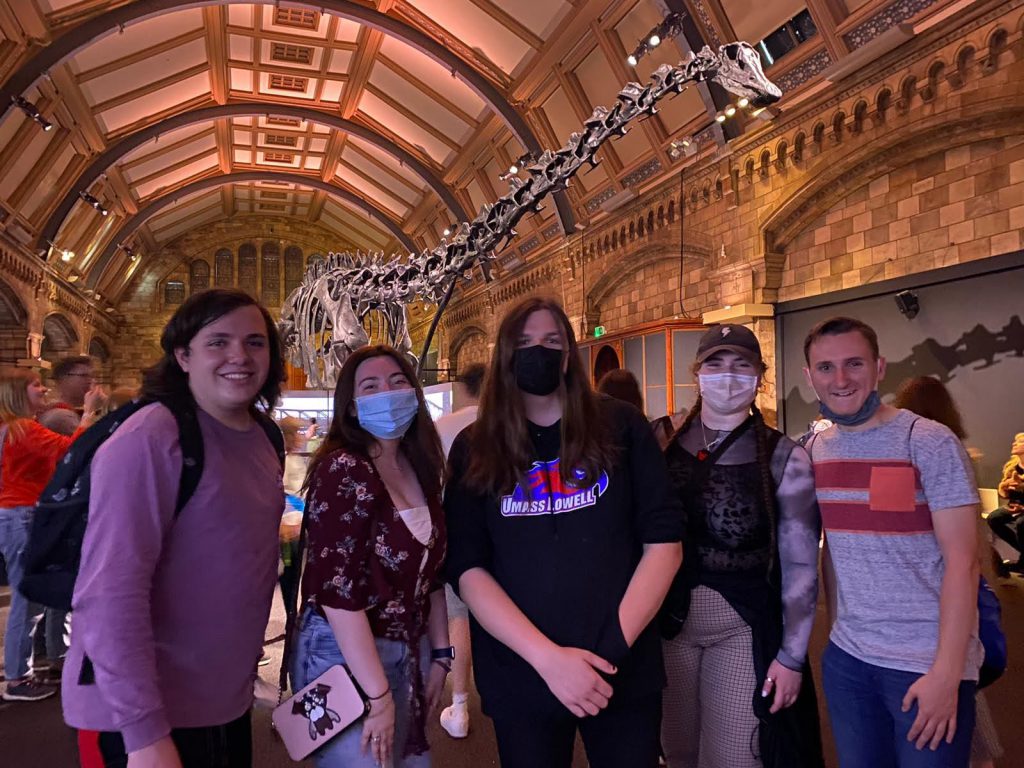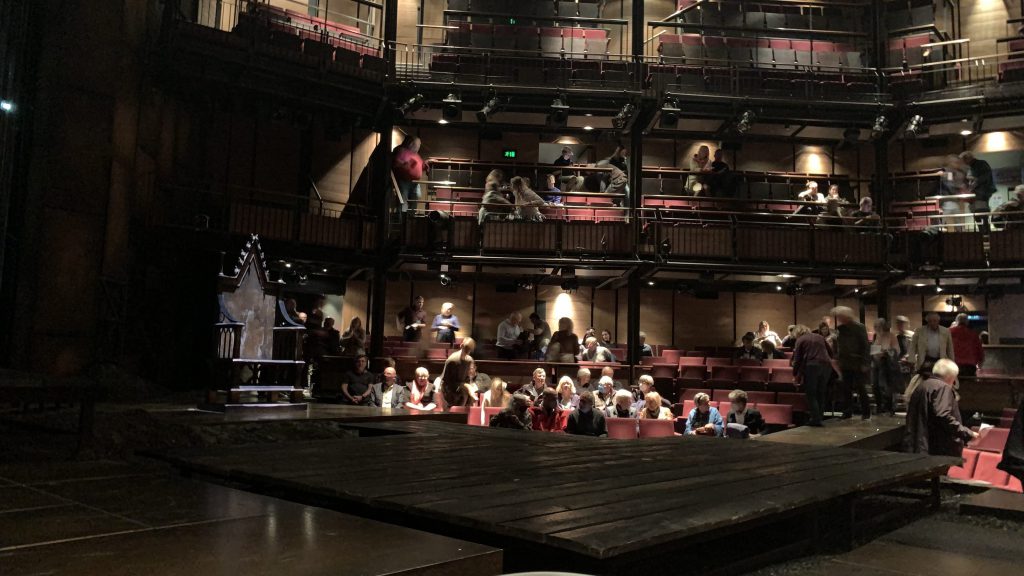While I knew that we would be seeing performances of Shakespeare’s plays during this trip to London, I had no idea that I would enjoy them as much as I did. When reading Much Ado About Nothing, I did not find it funny – a common problem I have when reading many of Shakespeare’s comedies. However, watching the play live was a whole other experience. I laughed quite a lot, and found the performances amazing! Seeing this play was a bit strange to me too, as we saw it in the Globe Theatre in the standing section. As I have been to many concerts, a standing room section was nothing new, but this was a whole new experience, as I have never stood for an extended period of time to watch a play. However, it was amazing to be so close and sometimes within the action, as the actors often walked through the crowds of people or called on those in the crowd to make them part of the performance. This felt relevant to me, as I have often found in entertainment across all cultures that the feeling of being so close to the performance can be quite special. In my personal experience, everyone who goes to a concert wants to be as close as they can to the stage, or taking the opportunity to reach out and hold hands with a musician. This was slightly different, but the idea remained – people love being involved in performance, and this form of entertainment can bring people closer together.

In comparison to the performance of The War of The Roses in Stratford, however, there were some differences. Obviously the genre of plays are different, with Roses being a war drama while Much Ado is a comedy, but I found the viewing experience different too. At the Royal Shakespeare Company, we were able to sit down for the whole show, but our seats were actually very close to the stage. We felt right in the action as well, albeit a bit less since the ramps the actors ran on were not on our side. As I mentioned in another blog post, the character of Margaret of Anjou made an immense impact on me, as I think it is very important to have female characters who do not fit into the stereotypical gender roles forced upon women. I think I liked watching The War of The Roses more, but both plays had about the same impact on me (although Margaret in The War of The Roses edges that play out to be my favorite).

After my two weeks in the United Kingdom, I think I can only describe Shakespeare as “adaptable”. Clearly, his works have been around for generations, yet they still are produced and performed today. As well, infinite discussions have been made about different aspects of his plays, such as race, gender, and sexuality, and how those plays can be changed to have a different meaning in a different time period. Shakespeare has adapted to the culture in every era since his debut, and pieces of his work are everywhere in popular culture and society as a whole. There truly is no limit to how far Shakespeare can reach, and I would not be surprised if he adapted to society decades from now, with even new takes on his works.



